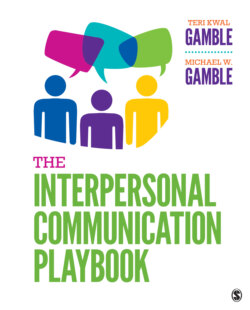Читать книгу The Interpersonal Communication Playbook - Teri Kwal Gamble - Страница 73
На сайте Литреса книга снята с продажи.
How Accurate Is Your Self-Concept?
ОглавлениеAlthough change is a constant in life, the thirst for constancy can lead us to cling to outdated self-notions even in the face of evidence that renders them obsolete. Instead of revising our self-concepts to conform to new information, we are likely instead to do our best to acquire information that confirms what we already believe is true. Our reluctance to let go of set ideas allows outmoded notions about the self to persist.
It is understandable that we might resist changing an inaccurate self-concept when the new information available to us is negative, because our self-concept could become more negative. For example, this could happen when we are no longer considered to be as bright or hardworking as we once were. It is harder to comprehend why we similarly resist changing when the information is positive and would enhance our self-concept, such as when we are no longer perceived to be gawky or unfriendly. By rejecting such information, we deny ourselves a chance for growth and self-renewal.
Defending an unrealistic negative or positive self-concept keeps us from redefining ourselves. Our cognitive conservatism keeps us from seeing the real need for change and allows us to continue deluding ourselves. Refuting new information that could lead us to change limits us and obscures our view of how others see us. Conducting a reality check is necessary to validate or invalidate who we think we are. Have you conducted one recently?
